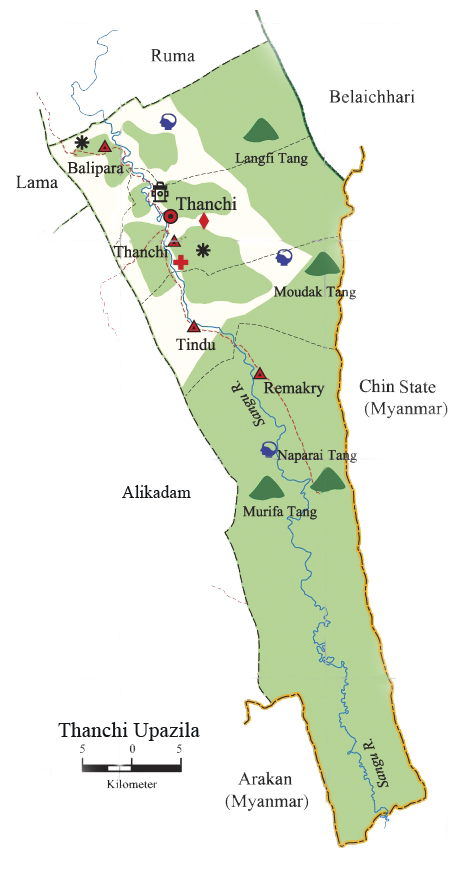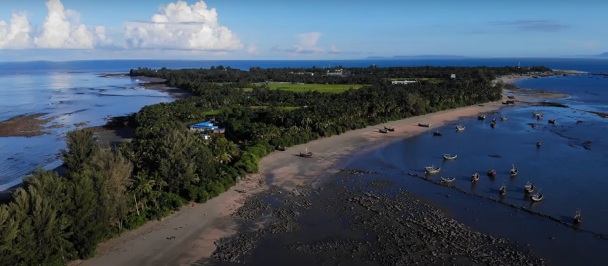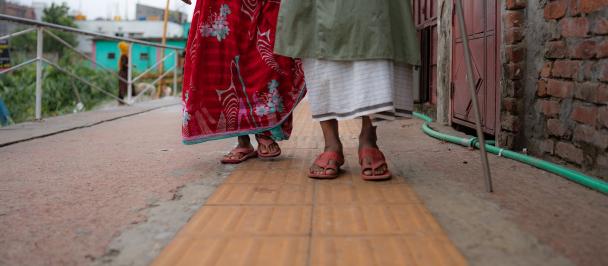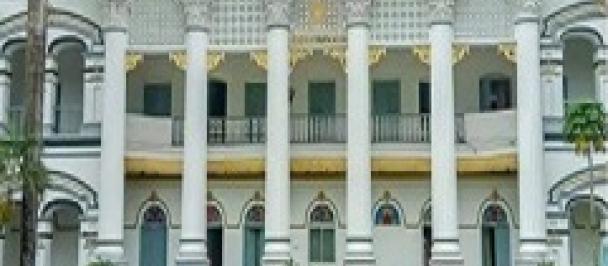By Ramiz Uddin, Head of Experimentation, AccLab, UNDP Bangladesh; Sohara Mehroze Shachi, Head of Solutions Mapping, AccLab, UNDP, Bangladesh; M M Zimran Khan, Head of Exploration, AccLab, UNDP, Bangladesh
©ACC-LAB
Community-based tourism is an approach to tourism presumed to achieve progress on SDG1 No Poverty and SDG11 Sustainable Cities and Communities.
Thanchi, a new horizon for Community-based Tourism has very high potential to flourish as a tourist destination. Very few attempts have been made so to explore this potential sector in Bandarban, so the benefits of tourism have been very limited for the local people. To identify and explore the existing condition of Community based Tourism in Thanchi, the AccLab team visited this exclusive destination for domestic travellers, and this blog post highlights some of the issues explored and solutions mapped during this visit.
Tourism has a seasonal pattern in Bandarban and can be divided into peak and off-peak season. Peak season mostly starts from October till March. Thanchi is a wholesome package of tourist spots covering Nilgiri, Remakri, Nafakhum, Shatbhaikhum Fall, Amiakhum Fall, Boromowdok, Sangu-Matamuhuri reserve Forest, and Shakhaphong. Homestay program is an element of community-based tourism (CBT) in this area, and tries to ensure the community’s economic empowerment as well as its direct involvement in tourism development. The existing facilities of homestay program can be arranged as afamily package and team package for young tourists.
Many tourists complain about the expensive boat rides, scrutinized verification system in three steps and lack of availability of proper useful information. This can be solved through website development and physical information centre establishment in the central part of Thanchi, preferably near a Bazar or Bus stand. A tourist map can also be developed pinning all the tourist spots with pictures, facilities, and necessary risk factors and safety information. A collaboration with different stakeholders notably tours operators, boatmen, jeep drivers and homestay management can be made. Capacity development training opens the door of better service providing to the tourists. Hence general training for tour operators, tour guides, and the boatmen, behavioural training for the jeep drivers, safety measurement training for the tour operators as well as the drivers, IT knowledge training, and network building training for jeep drivers and tour operators must be arranged to avoid mismanagement.
Establishing a permanent training centre in Thanchi Upazilla Sadar can be an option focusing on the host community responsible for arranging homestay, jeep drivers, boatmen, tour operators, tour guides, local agriculture producers, indigenous handicrafts producers and local sellers in different bazar. Henceforth, it can be useful to develop a training module including IT knowledge modules, network building guidelines, modules for general first aid, cultural knowledge in collaboration with Local Government, UNDP and Tourist Police. This will enable the local people to participate in the training programs and long-term training can create a scope of sustainable tourism in Thanchi.
Another aspect of CBT in this area is Product-based tourism. Local market can draw the attention of the tourists through their own grown agricultural products or handicrafts. Authorities can propose the Jhum agricultural products to be declared as GI products. This could be an opportunity to promote their business to a broader audience, for which, they need capacity building training. UNDP Bangladesh Accelerator lab has already started providing training on Behavioural Changes and IT Knowledge development.
Community-based waste management project can be introduced and as there is no waste management policy currently present. Keeping the Thanchi bazar area clean can help attract more tourists. An inflammable center can be established in collaboration of BTB, UNDP and Upazilla Parishad authority. Infrastructure development can be carried by these collaborations, with monthly expenditure for logistics management collected from the Bazar Owners Association. A short-term awareness building training is needed for the shop owners and other stakeholders for ensuring effective waste management. Funding can potentially come from BTB, Upazilla Parishad, and UNDP, and the UNO Thanchi, and UNDP can be the implementing entities. And if this model is successful, it can be implemented in the remote homestay tourist spots (i.e Thuisha Para, Jinnah Para and Remakri water falls area)

CBT has remarkably high potential to flourish in Thanchi. To that end, protecting the local community from exploitation through awareness building training for the hosts is of paramount importance. To sustain the community-based tourism development and living standard of every community, principle of ‘leaving no one behind’ must be adopted. Inclusion of one member from every household in income generation activities is necessary to ensure the integration of their livelihood within various nodes of the tourism supply chain.
However, the indigenous people are not trained in hospitality. They do not have access to capital for establishing eco- friendly cottages and other facilities for the tourists. Consequently, external intervention is required in the fields of formulating tourism planning, creating eco-friendly infrastructure and superstructure, training the people in hospitality, making them innovative in exploring varied income generating tourism and tourism related activities. A highly developed professional plan along with concerted efforts by the intervening agencies, in association with the local people, may turn Thanchi into one of the most attractive tourism destinations and thus contributing to the socio-economic upliftment of the local community.



 Locations
Locations



